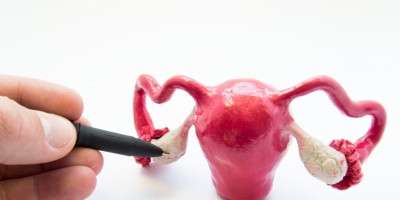It is observed that there is a connection betweenhigh prolactin and infertility . One of the causes of infertility is excessive elevation of this hormone. However, infertility may not be seen in every prolactin elevation. When this hormone rises, problems may occur in female reproductive organs. The problems that occur are directly proportional to this hormone. In short, the higher this hormone is, the more it impairs ovulation function.
As a result of such a situation, situations such as no menstruation or interruption of menstruation occur. When the hormone rises, menstrual irregularity begins. Milk may come from the breast. When symptoms are noticed, it is absolutely necessary to be examined and treatment should be applied without causing infertility.
What is Prolactin Hormone?
What is Prolactin Hormone? Prolactin, which is secreted in the pituitary gland, which is located in the lower part of the brain and has the size of a chickpea, is defined as a type of hormone. Its function is to mature the mammary gland from the 2nd month of pregnancy and make the expectant mother ready for milk production. This hormone remains at a high level duringpregnancy and puerperium . It is also responsible for ovulation and the cessation of the menstrual cycle. The regular secretion of the hormone from the pituitary gland during pregnancy and lactation stops the secretion of some hormones. This prevents pregnancy from occurring again for a while.
This hormone is the reason why a woman who has just given birth cannot menstruate and cannot get pregnant again. In men, it has a negative effect on sexual desire. It also plays a role insperm production. In women, low levels of this hormone rarely occur and in this case, insufficient milk production occurs.


What Does High Prolactin Hormone Mean?
If this hormone is high even though there is no pregnancy or puerperium period, the production of other hormones is suppressed. As a result, egg production is interrupted, inability to conceive and menstrual irregularity problems arise. It decreases the level of estrogen in women and testosterone in men. As a result, sexual function deterioration occurs. The conditions caused by the elevation of this hormone are listed as follows:
- Presence of pregnancy
- Transparent or white discharge from the breast outside pregnancy, milk discharge
- Menstrual irregularity
- Absence of menstruation
- Low oestrogen
- Vaginal dryness
- Infertility
- Breast enlargement in men
- Erectile dysfunction
- Sudden decrease in hair level in males
- Headache and visual disturbances
What Causes High Prolactin?
In this case, also known as high milk hormone, if this hormone is secreted despite the absence of pregnancy and puerperium, it may cause some problems. The presence of benign tumours in the pituitary gland, polycystic ovary syndrome, kidney and liver diseases can cause an increase in this hormone. Massage of the breast, heavy exercise, insomnia are among the causes. Conditions that increase the prolactin level include the following:
- Use of tight underwear
- Side effects of antidepressants and other drugs
- Endocrinological problems
- Pituitary tumours
- Unbalanced diet
- Anorexia
- Breast trauma
- Lung cancer
- Insomnia


What Causes High Prolactin?
What Causes Prolactin Elevation? The prolactin hormone, which causes the breast tissue to develop during pregnancy and become ready for milk production, helps to secrete milk by stimulating the breast after birth. However, when it rises outside of pregnancy and puerperium in women, it causes menstrual irregularity, menstrual cessation, infertility, decreased sexual desire, and milk from the nipple. It also causes conditions such as transparent or white discharge, painful sexual intercourse due to vaginal dryness.
In men, it causes sexual reluctance due to hyperprolactinaemia. It causes erection problems, infertility, decrease in body hair. Rarely, it can also cause discharge from the nipples of men. However, it can also cause the individual to experience excessive headache and visual impairment.







